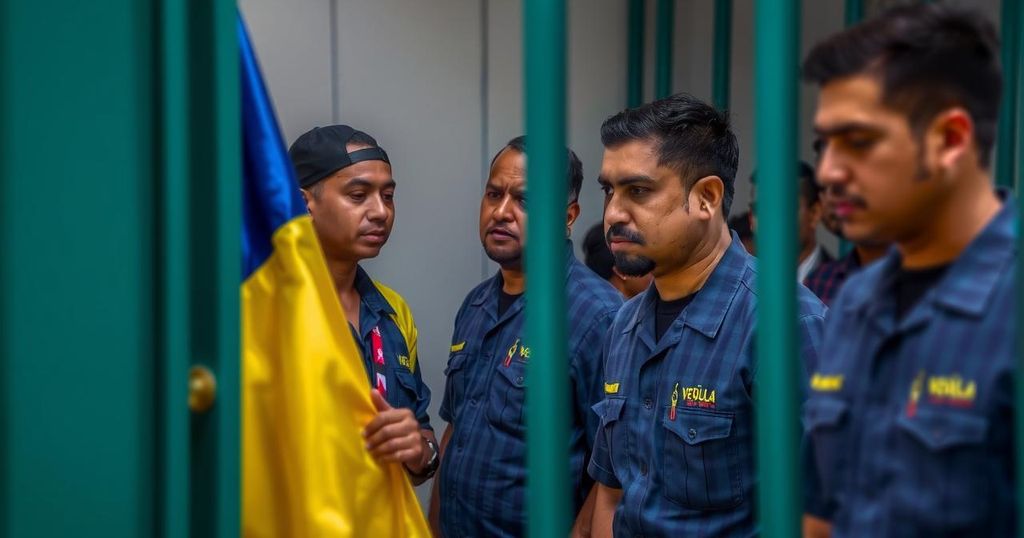Dozens of political prisoners, detained during protests following Venezuela’s disputed election, have been released, including fifty from Tocorón prison. The releases occur amid reports of fatalities and continued government crackdowns, with over 1,800 detentions documented. Furthermore, the Venezuelan Attorney General is reviewing the cases of additional detainees, signaling potential further releases. The backdrop remains one of skepticism regarding Maduro’s election legitimacy and rising international concern over human rights violations.
In a significant development following Venezuela’s controversial presidential election, the local rights organization Foro Penal announced the release of a total of seventy individuals who were imprisoned during protest activities. Among those released, fifty individuals were freed from Tocorón prison in the Aragua state, while an additional twenty were liberated from three other correctional facilities. The uplifting scenes surrounding their release have been captured on video, exhibiting heartfelt reunions as released individuals embraced their families amidst cheering supporters. Since the election held in July, which resulted in the re-election of President Nicolás Maduro amidst considerable skepticism both domestically and internationally, more than 1,800 protestors have been apprehended, according to Foro Penal. Reports by Human Rights Watch indicate that at least twenty-four individuals were killed amid the governmental crackdown on dissent. Moreover, the Venezuelan Attorney General announced intentions to review the cases of over 200 detainees related to the protests, indicating that further releases may soon occur. Tragically, these developments come on the heels of the death of Jesús Manuel Martínez Medina, an opposition party member who had been in custody since August 2 and was hospitalized in critical condition prior to his passing. The Attorney General indicated that he had received “adequate medical attention” but did not disclose the specifics regarding the date of death. The aftermath of the election continues to destabilize Venezuela, with the electoral authority, comprising Maduro’s allies, declaring him the victor by a narrow margin of 51%, despite opposition claims suggesting a different outcome. With numerous nations opting not to recognize Maduro’s victory, the political landscape remains tense as he prepares to assume his third consecutive six-year term in January.
The situation in Venezuela has been severely strained since the disputed presidential election in July, during which Nicolás Maduro was re-elected. Criticism arose due to doubts about the election’s legitimacy, fueled by claims from opposition groups contesting the official results. Amidst widespread protests and dissent, the government engaged in a crackdown that resulted in numerous detentions and reports of fatalities. Human rights organizations have accentuated the severe implications of these governmental actions, emphasizing the need for accountability and recognition of the rights of individuals.
The recent release of prisoners in Venezuela marks a notable moment amidst ongoing political turmoil following the disputed presidential elections. While more individuals may be freed, the troubling backdrop of violence and governmental repression persists. The situation underscores the need for international attention and advocacy for human rights as Venezuela prepares for Maduro’s upcoming term amidst significant controversy.
Original Source: www.cnn.com






